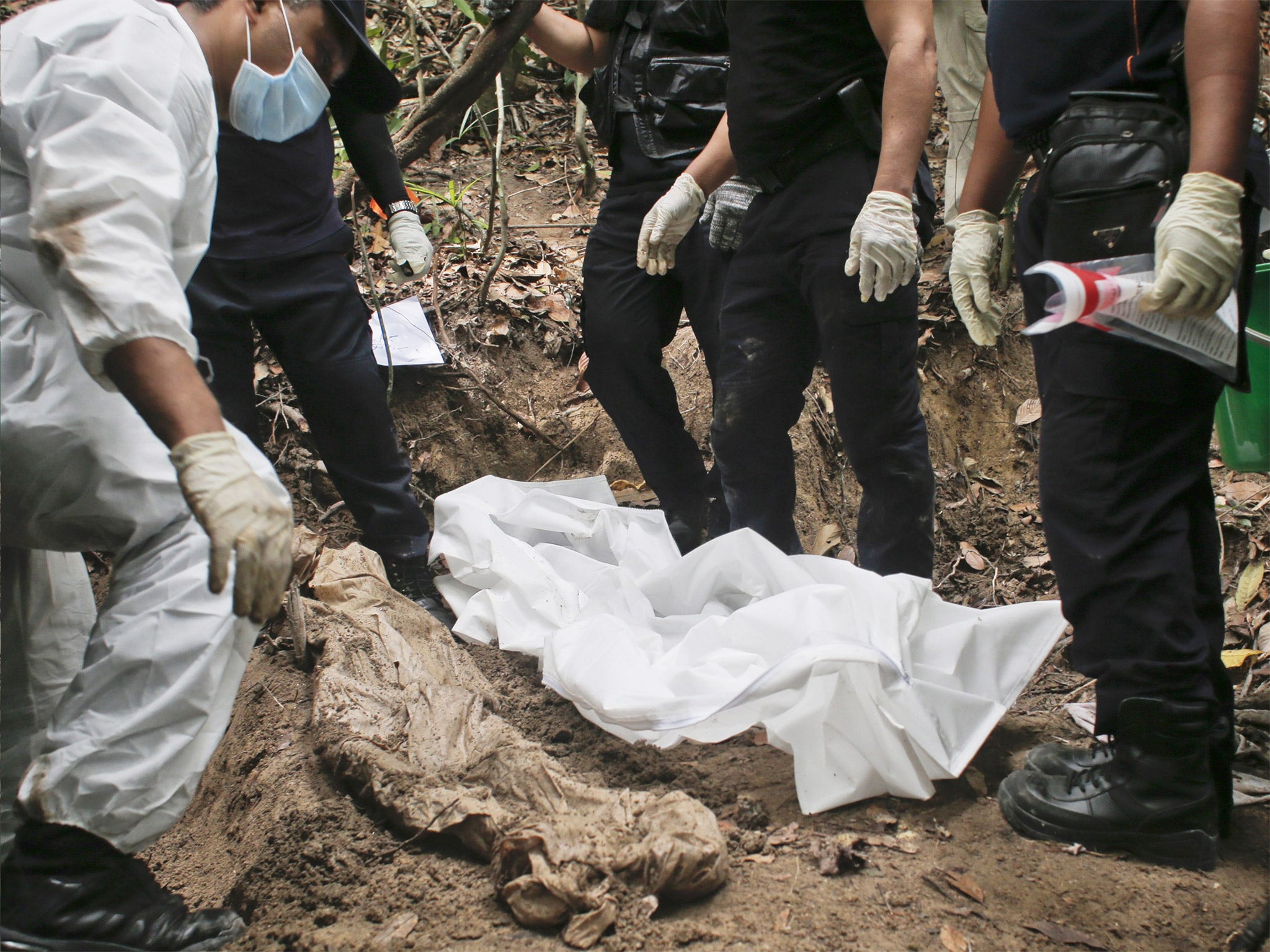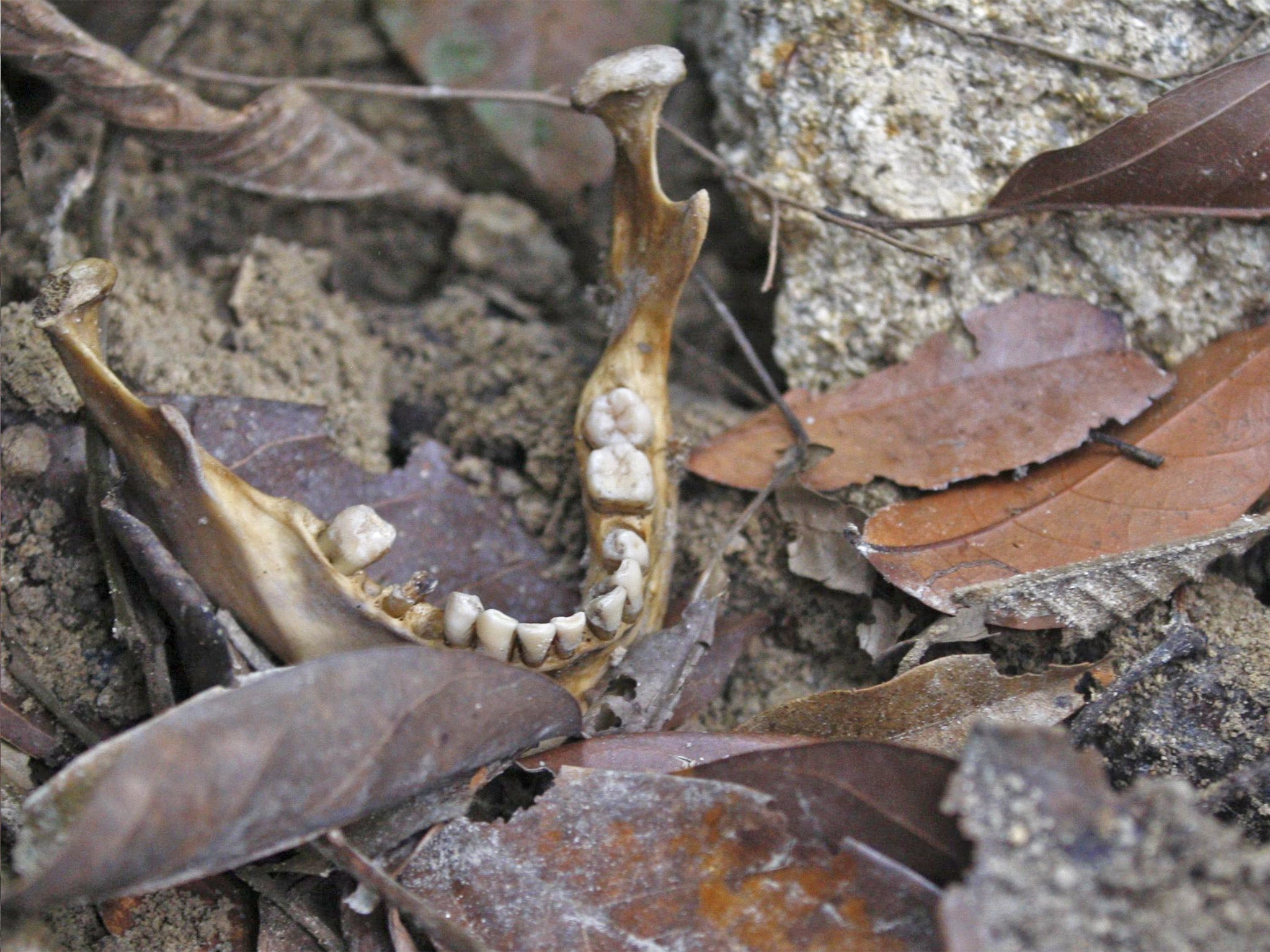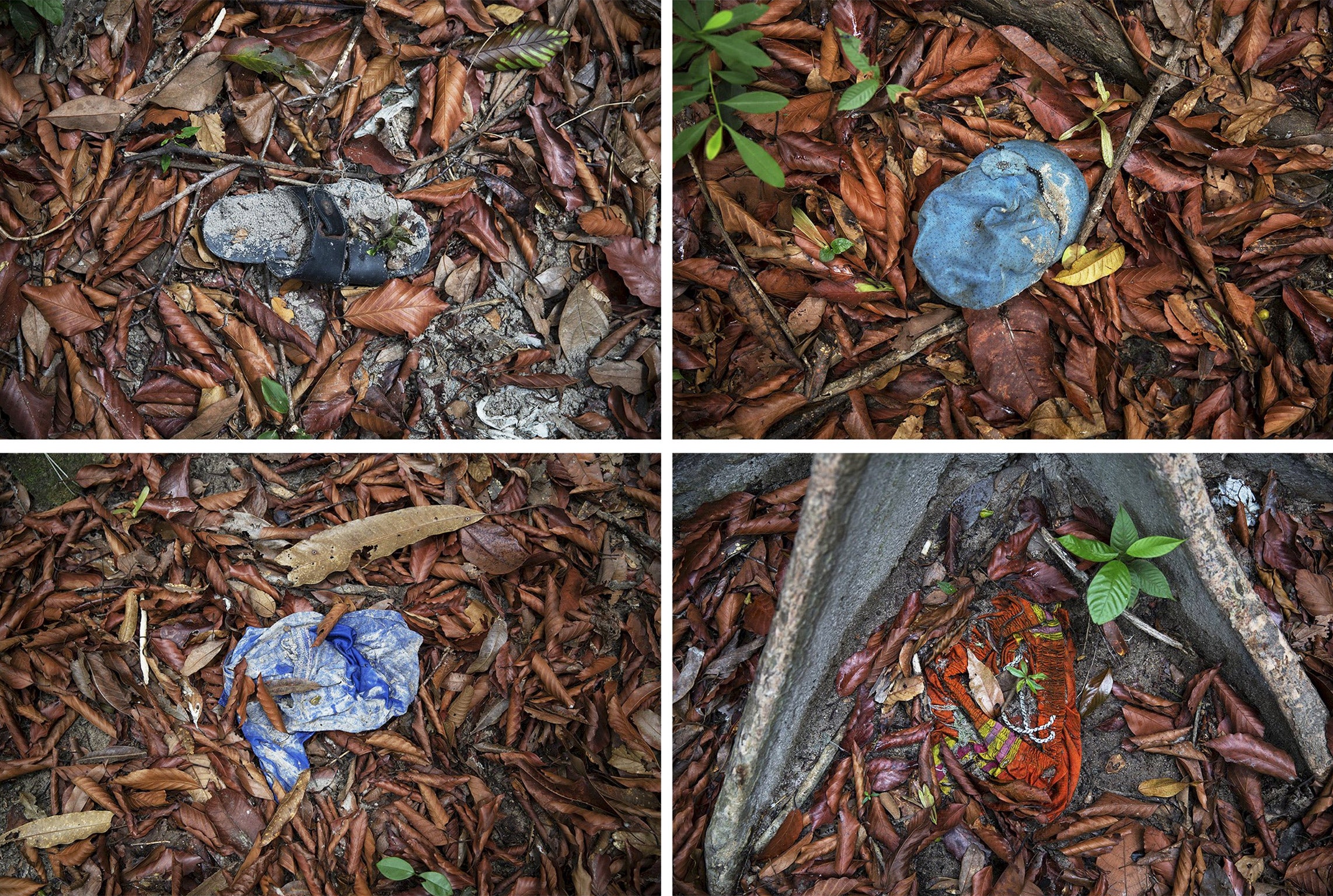Malaysian police search for trafficking victims in shallow jungle graves
The area is a major stop-off point for smugglers bringing mostly Bangladeshis and Rohingya Muslims fleeing persecution

Your support helps us to tell the story
From reproductive rights to climate change to Big Tech, The Independent is on the ground when the story is developing. Whether it's investigating the financials of Elon Musk's pro-Trump PAC or producing our latest documentary, 'The A Word', which shines a light on the American women fighting for reproductive rights, we know how important it is to parse out the facts from the messaging.
At such a critical moment in US history, we need reporters on the ground. Your donation allows us to keep sending journalists to speak to both sides of the story.
The Independent is trusted by Americans across the entire political spectrum. And unlike many other quality news outlets, we choose not to lock Americans out of our reporting and analysis with paywalls. We believe quality journalism should be available to everyone, paid for by those who can afford it.
Your support makes all the difference.Malaysian police forensic teams, digging with hoes and shovels, began pulling out bodies from shallow graves yesterday found in abandoned jungle camps where it is thought hundreds of victims of human traffickers may be buried.
The Malaysian government said it was investigating whether local forestry officials were involved with the people-smuggling gangs believed responsible for nearly 140 such graves discovered around grim camps along the border with Thailand.
The dense forests of southern Thailand and northern Malaysia have been a major stop-off point for smugglers bringing people to South-east Asia by boat from Burma, most of them Rohingya Muslims fleeing persecution, and Bangladesh.
The plight of the Rohingya has shocked the world and an international gathering addressing the situation of Rohingya Muslims opened yesterday in Norway.

In Malaysia, authorities took a group of journalists to one of the camps, nestled in a gully in thick jungle up a steep, well-worn path about an hour’s walk from the nearest road.
Malaysian police said on Monday they had found 139 graves, some containing more than one body, around 28 camps along a 30-mile stretch of the border in the northern state of Perlis.
Joel Millman, a spokesman for the International Organisation for Migration (IOM), told a news briefing in Geneva that the group “predicts hundreds more [bodies] will be found in the days to come”.
The grisly discoveries in Malaysia followed the uncovering of similar graves on the Thai side of the border at the beginning of May, which helped trigger a regional crisis. The find led to a crackdown on the camps by Thai authorities, after which traffickers abandoned thousands of migrants in overloaded boats in the Bay of Bengal and Andaman Sea.
“We don’t know if there is a link between the Thai camps and Malaysia camps,” Phuttichart Ekachan, deputy chief of Thailand’s Provincial Police Region 9, said.
“It is possible that because of the Thai crackdown some of the camps moved and some of them [migrants] then walked over or escaped to the Thai side. It isn’t something we have been able to confirm.”
Thousands of Rohingya Muslims are ferried by traffickers through southern Thailand each year, and in recent years it has been common for them to be held in remote camps along the border with Malaysia until a ransom is paid for their freedom.
The IOM’s Mr Millman said the largest camp was believed to have had a capacity of up to 1,000 people.

“If an individual’s family did not pay, those in the camps were tortured, beaten and deprived of food,” he said.
The state news agency Bernama quoted Malaysia’s police chief, Inspector-General of Police Khalid Abu Bakar, as saying that the camps were thought to have been occupied since 2013, and two were “only abandoned between two and three weeks ago”.
Mr Khalid told reporters on Monday that police had been “shocked by the cruelty” of the camps, where he said there were signs of torture.
The scale of the discoveries has raised questions about the level of complicity by officials on both sides of the border.
Malaysia’s Home Affairs Minister, Ahmad Zahid Hamidi, said on Tuesday that initial investigations revealed links between forest rangers and smuggling syndicates, Bernama reported, adding that some had been detained by police as part of the probe.
“We suspect some of them were involved but we are working with the forestry department in terms of enforcement,” he was quoted as telling reporters at parliament. Reuters
Join our commenting forum
Join thought-provoking conversations, follow other Independent readers and see their replies
Comments